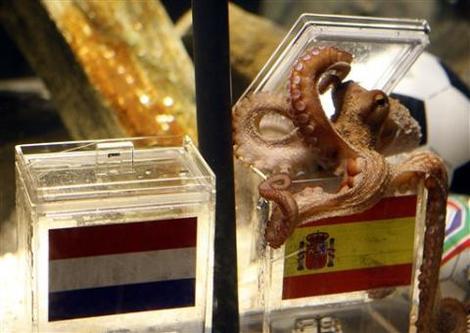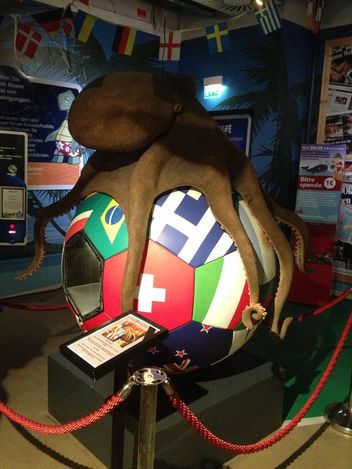 Seeing the Future Seeing the Future A long time ago, before cell phones, I was in the house, and some relatives were going to go out and do fun stuff. I was tired, so I declined to join them and instead took a nap. When I woke up, I looked at the time, and I was surprised that my relatives had not returned. I started getting an uneasy feeling. Why were they late? I went about some task I decided to perform in the house, but I could not shake off the feeling that something was wrong. Outside it was a warm, bright, summer day with blue skies, but inside I got the impression that the house had darkened and gotten colder. I tried to distract myself, but I kept looking at the time and my unease kept growing. I started getting the feeling that something bad had happened to my relatives. Perhaps they were involved in a car crash, or something else. As more time went by, my unease started transmogrifying into panic. I began to feel certain that something bad had indeed happened, and the churning of the wheels of destiny became very noticeable all around me. I was having a premonition! Our culture is filled with stories of how people past and present knew that something had happened or that something was going to happen. These premonitions are hailed as instances where our minds are able to gain knowledge of events that are not yet known or to peer into the future to see events that have not yet happened. Some people are claimed to be gifted in the art of having premonitions, being able to have these events with a high frequency or even on demand, and they are known by many names such as prophets, oracles, mediums, clairvoyants, seers, soothsayers, fortune tellers, spiritualists, diviners, psychics and others. Stories about premonitions range from mere personal and family anecdotes to events enshrined in the holy texts of many religions. So what happened to me that day? My relatives came back unharmed and we laughed at my freaking out over them being late.
The vast majority of premonition stories can be explained by what are called “selection and confirmation bias”. There are billions of people in this world and a good number of them have these feelings, or dreams, or inklings, or hunches about things that will happen. At the same time, there are multitudes of things both good and bad happening in our societies on a daily basis. It is easy to understand how a few of these premonitions will end up being associated with any of these events. The vast majority of premonitions are not fulfilled and are forgotten, but (and here is the key) those that are fulfilled are remembered and assigned a special meaning thus consummating the selection bias. As to the confirmation bias, if something bad had indeed happened to my relatives, I could have ended up believing that somehow I managed to gain information of this event in a way that cannot possibly be explained. If I had been an extremely religious person and, for example, had prayed that nothing happened to my relatives, the fact that they came back safe would have reinforced in me the notion that I somehow managed to ward off anything bad happening with my praying. The most powerful experience related to premonitions is when people act on them and prevent a bad thing from happening. For example, someone dreams that there will be a ghastly traffic accident downtown and convinces a friend not to go to town for the weekend. The friend stays home, and indeed there is a terrible traffic accident that kills several people in the area the friend was planning to visit. These types of premonitions are hailed as indisputable proof that there is something beyond our regular senses that can furnish us with this type of information. Unfortunately, these cases are nothing but mere anecdotes and cannot be accepted as evidence because they don’t rule out that the occurrence was a coincidence. This is not to say that the brain cannot come up with ideas in a manner that we are not conscious of. Most of us have experienced trying to solve a problem with no success, and then going to sleep just to come up with the solution to the problem in a dream or during the interval when we were walking up. The brain is constantly and unconsciously tallying information and integrating it with experience, and sometimes the end result of this process enters our conscious mind suddenly. For example, a month ago we may have seen some cracks in a retaining wall down the street and forgotten about seeing them because we normally don’t walk by that wall. However, if it has rained vigorously since then, we may wake up one day with the “feeling” that the wall will fall. If the day we get this “premonition” we find out that the wall indeed did fall and killed someone, this is not proof that something supernatural happened. It was just a combination of chance and our brain doing its job. Despite all claims to the contrary, there is no conclusive evidence that human beings can gain knowledge of events that have not happened or of events that have happened but about which they have received no information in any way. We perceive reality through the specialized receptors that make up our senses. There is no way such receptors can detect the type of events that are involved in a premonition, and not a single instance of the so-called extrasensory perception or ESP has ever been conclusively demonstrated. For many people whose premonitions have led them to have life-altering experiences, it is frustrating to hear scientists say these things, but it must be understood that, in the absence of a plausible mechanism by which we can gain the information that we allegedly gain when we have a premonition, the bar for proof that something real has occurred is set very high. Demanding this level of proof may strike some people as unfair and narrow-minded, but science is very conservative, and there are real risks in keeping an open mind when dealing with subjects like premonitions. Science is in the business of determining what is possible and what is impossible, and so far the evidence for premonitions has not cleared the bar. Image of crystal ball from Pixabay by Tumisu is in the public domain.
2 Comments
 Excitement was in the air as the world was once again struck with World Cup fever, and the teams from 32 nations competed in Russia to decide who would be the world soccer champion. In the final France defeated Croatia to claim the title for the second time. However, rather than write about the science behind soccer, today I want to revisit the exploits of Paul, an unassuming octopus who dwelled in a tank at the Sea Life Center in Oberhausen, Germany, and who correctly predicted the outcome of 8 consecutive World Cup games back in 2010.  It all started during the 2008 matches for the European Soccer Cup. In what was a publicity stunt for the aquarium, Paul's keepers began introducing into his tank 2 plastic boxes each containing a tasty mussel. The boxes with lids that the octopus could open had the flag of the German team on one of them and the flag of the opposing team on the other. The idea was that the box that Paul opened first would be the winner of the game. Thus, during the European Cup Paul predicted that the German team would win all of its 6 games but got 2 of the results wrong when the German team was defeated by Croatia in the group phase and by Spain in the final. As it turns out, Paul was just honing his divination skills. Two years later, during the group phase of the World Cup the cephalopod correctly predicted that Germany would defeat Australia and Ghana, and lose against Serbia, but still he remained a local phenomenon. It was during the round of 16 games when Paul predicted that Germany would defeat England that he began to receive international attention, and then everyone went wild when the octopus correctly predicted that Germany would defeat Argentina in the quarter finals. Paul's divinations began to be transmitted live throughout Germany and to other countries, and pundits for and against the mollusk expounded their views in electronic and printed media. Paul became a superstar, a media sensation with his own Twitter and Facebook fan pages. The German soccer fans sensed that the mysterious forces that Paul channeled were on their side. Would Germany win the World Cup? Unfortunately it was not to be, Paul was an honest soothsayer and he called them like he saw them. For the next game he chose Spain as the winner. Gloom and doom washed over the German fans. The German players were shocked to learn the news: the cephalopod's "vibes" were no longer on their side. How could THEIR octopus do this to them? On the eve of the game they all prayed and many took solace that Paul had been wrong before, but to no avail, Spain defeated Germany in the semifinal. Angry fans flooded the German media with their favorite octopus recipes. Articles were printed labeling Paul a "traitor". The aquarium received threats and Paul's security detail had to be doubled. Spaniards on the other hand were delighted that the oracle was on their side. The Spanish president announced that he was considering sending a team of bodyguards to protect Paul, and Spain's environment minister promised to grant Paul the condition of an endangered species so Germans would not eat him. Paul redeemed himself a bit by correctly predicting that Germany would defeat Uruguay in the game for third and fourth place. His handlers then for the first time asked the tentacled wonder to predict the outcome of a game where Germany did not play: the final between Spain and the Netherlands. In his final World Cup prediction, the mollusk chose Spain. This was significant as half a world away in Singapore another psychic animal wonder (albeit with a spottier track record), a parrot named "Mani", picked the Netherlands to win. So that fateful final game of the 2010 World Cup was not just the Netherlands vs. Spain, it was also a clash between the two psychic titans, the parrot vs. the octopus, and it was the invertebrate that prevailed. Despite many hefty monetary offers to the aquarium to have Paul expand his soothsaying abilities to things like the economy as well as requests that Paul be present at different events to honor him, his handlers declared that the mollusk would retire from the divination business and would live the rest of his life making children happy at the Oberhausen Sea Life Center. Alas, as it turns out Paul’s days were numbered. He died later that year in October, and a memorial to Paul was erected at the Sea Life Center in Oberhausen. However, besides all the fun and games some people have been left wondering whether Paul was for real. Was there something to his soothsayer abilities? Did Paul have hidden powers? Was he a psychic? This question is not as silly as it looks. By the time Paul started getting noticed there were individuals who were betting on World Cup games based on his predictions. People "out there" believe the darnedest things, and I am sure that Paul's feat convinced many of his fans that there was something going on with this octopus beyond mere chance. So let's put Paul's performance into perspective. First of all, the chances of getting the outcome of 8 consecutive games right is 1/256. This is the same as the probability of tossing a coin 8 times and obtaining heads every time. Although this is not a very probable event it is within the realm of the possible. Paul was not operating against a million to one odds here. One way to look at these odds is that if 256 people tossed a coin 8 times, at least one would succeed in obtaining heads eight times. If you consider that there were a billion plus people throughout the world watching the World Cup and trying to guess the outcome, you can calculate that 4 million people or so probably guessed the outcome of 8 games in a row correctly. However, none of them had the tentacles to become a media sensation. The other issue to consider is possible sources of biases in the divination procedure itself. Although octopuses like Paul do not have color vision they do perceive light and dark contrasts, and notice shapes including horizontal lines or bars. So, one possibility is that the flag design on one of the boxes attracted the mollusk's attention more than another. If Paul was attracted to the German flag design this could have biased his choice in favor of Germany, which he predicted to win 5 out of 7 times. The box location is another possible source of bias. In 6 out of 7 of Paul's divination trials the location of the box he chose was the one on the right (the information about the position of the box is lacking for one of the games). This is important because in 4 out of 6 of his predictions the box with the German flag was also the one on the right. Did Paul predict accurately or did he have a bias for the box on the right and the flag of whoever won happened to be there? Other possible sources of bias include whether any scent or food smears were stronger in one box vs. the other, or even whether the performance of some superstitious players could have been influenced, positively or negatively, when they learned about Paul's choice. The elimination of sources of bias is a common procedure in the scientific test of the abilities of psychics and so far in the history of scientific psychic testing, when all the biases are accounted for, not a single psychic has been able to perform above chance. Thus, if Paul's handlers had been interested in asking the question of whether Paul was for real, they could have concealed the flags, made sure the flags were randomly assigned to a given box, made sure there were no scent or food smears cues in either box, or even revealed Paul's choice after the game to make sure no superstitious players were influenced. But the handlers were not interested in doing this because their intention was not to ask whether Paul really had psychic abilities. They just wanted to attract attention, raise money for the aquarium, and have a good time. And in this they succeeded beyond their wildest dreams. Others were not so fortunate. For example the Chemnitz zoo also in Germany tried its luck at the divination business with Leon the porcupine, Petty the pygmy hippo, and Anton the tamarin, but each of these animals struck out in the group phase of the World Cup picking the wrong team to win. So let's all have a good laugh remembering the exploits of "The Oracle of Oberhausen" and not take things too seriously and, oh yes, enjoy a nice seafood dish every now and then. The picture of Paul from "Voice of America" is in the public domain. The picture of Paul's memorial by Christophe95 is used here under an Attribution-Share Alike 3.0 Unported license. |
Details
Categories
All
Archives
June 2024
|
 RSS Feed
RSS Feed